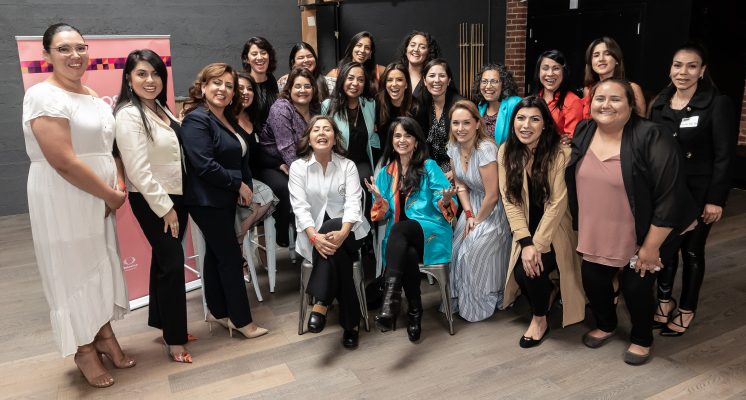Today, the Eva Longoria Foundation and SurveyMonkey are announcing our partnership to further support Latina entrepreneurs. Together, we’ll provide Latina entrepreneurs with SurveyMonkey products and training that will enable them to collect and analyze feedback about their market and customers, grow their businesses, and continue leading their communities.
Below, Eva Longoria and our CEO, Zander Lurie, share what inspired the partnership, insights they learned from surveying Latina entrepreneurs, and what we are doing in response.
What should readers know about Latinas as entrepreneurs?
Eva: Part of the work of Eva Longoria Foundation is increasing awareness of everything that Latinas contribute to our society, including as entrepreneurs. The Latinx community is the second largest ethnic group in the country, and despite facing an opportunity gap, before the pandemic, Latinx-owned businesses employed 3 million Americans. And Latina women in particular have been leaders in the space, starting businesses at six times the national rate.
As we have a national conversation about rebuilding the American economy post COVID-19 —who is struggling, where do we invest, what does a more equitable future look like—Latinas have to have a voice in that conversation.
COVID-19 has upended small businesses. How has it changed the experience of Latina entrepreneurs specifically?
Eva: The data reinforces what Latinx business owners have been telling us: just 20% of Latinx applicants received a PPP loan for their small business, and more than 25% have lost income or had to shut down their business altogether. Latina small business owners face the additional challenge of unpaid labor at home, as women are now spending 15 hours more per week on unpaid care and labor than men are.
COVID-19 has shown that our current social and economic systems aren’t working. But in the same way that the pandemic has forced us to change many aspects of our daily lives, it is our opportunity to share a more equitable, resilient future. If our goal for the post-pandemic economy is to “build back better”—meaning a sustainable, inclusive approach to business—we need data to understand how the pandemic has impacted diversely-owned small businesses, and to provide actionable recommendations for governments, the business community, and consumers to make a difference.
Zander: That sentiment Eva touched on is what underscores our social impact work through SurveyMonkey for Good. Our mission as a company is to power the curious. Our vision is to raise the bar for human experiences by amplifying individual voices. This vision guides every decision we make—whether it’s about our products, policies, or culture. Early on, we recognized the need to extend our listening capability to key populations that would benefit from having a greater voice. Through this partnership, we’re proud to help serve the needs of Latina entrepreneurs and shine a light on how they have been affected by COVID-19..
Tell us more about the partnership.
Zander: SurveyMonkey is thrilled to partner with the Eva Longoria Foundation. We understand the vast potential of Latina entrepreneurs to advance economic mobility for everyone. Through this partnership, we are researching the current needs of Latina entrepreneurs (including how COVID-19 has impacted their businesses), publishing and amplifying our data and learnings, and ultimately helping to develop tailored solutions for supporting under-resourced Latina entrepreneurs.
What insights can you share from the research we did together?
Eva: The short answer is that Latinas need access: access to capital and inclusive financial services, access to expanded networks, and access to flexible training and capacity-building services.
Zander: First, the survey reinforced that Latina entrepreneurs are largely self-funded. 92% of respondents cited personal savings as the primary source of funds used to start or grow their business, followed by family contributions (8%) and bank loans (8%). That is a very different source of funding than other cohorts of entrepreneurs who have greater access to equity capital and debt financing.
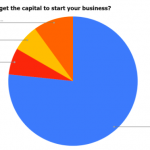
According to the entrepreneurs we surveyed, access to capital is a continuous challenge both when starting their businesses and in the ongoing operations. Obviously this limits an entrepreneur’s ability to launch and grow her business.
Eva: Financing with personal funds also means that Latina business owners are bearing much more risk—including the personal stress they carry until the funding is repaid, which is a cost that’s hard to quantify. It’s one of the reasons that the Eva Longoria Foundation started our microloan fund—we want to get capital into the hands of Latina small business owners who may have previously experienced discrimination in the loan application process, don’t have trust in our financial institutions, or need very small amount of capital that’s below the threshold of what a bank can lend.
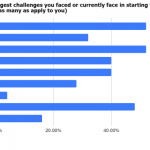
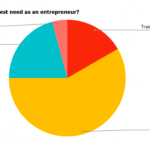
Zander: The survey also confirmed that Latina entrepreneurs often lack access to the networks and mentorship needed for long-term business success. Nearly half (48%) of the Latina entrepreneurs surveyed had not received mentorship or training outside of their participation in the Eva Longoria Foundation’s programs. If we’ve learned anything during this pandemic, it is the importance of having business mentors and a supportive network to help navigate challenging and uncharted waters.
One participant summed it up well: “I need an entrepreneur network with other companies. I have sat through several workshops that talk about free resources, but I need ideas from people who have grown their business in my industry.”
Eva: Networks and mentorship matter. There’s a saying in Spanish: “Dime con quien andas y te diré quien eres.” Translation: “Tell me who you’re with and I’ll tell you who you are.” Networks are a big part of small business success. The research shows that small businesses that receive mentoring early in the development of the business achieve higher revenues and increased business growth.
Zander: The final point is that training and capacity-building isn’t very accessible.
Google searches (22%) and online free courses (17%) led as the main sources of training that entrepreneurs used to learn how to better run their businesses, ahead of in-person business workshops (10%) and community/nonprofit workshops (17.6%).
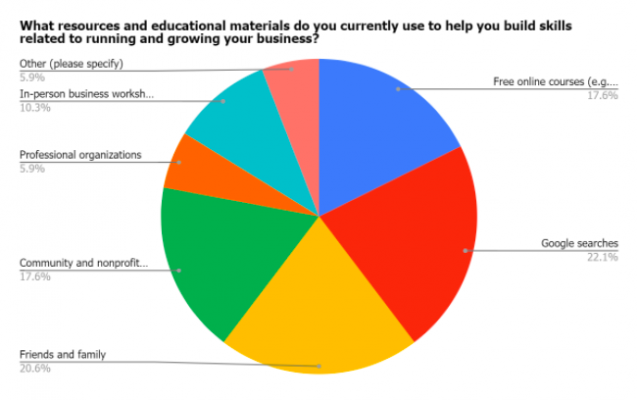
Our survey identified market research and customer feedback products as critical growth levers we can provide to the Eva Longoria Foundation’s entrepreneurs. We’re also developing a market research and audience insights training course that is on-demand, so that entrepreneurs will have flexible access that accommodates their schedules.
Eva: This is just the start of our work together. By doing this research to learn what the community needs and then stepping up to provide increased access, SurveyMonkey is setting a great example for other tech companies. American ingenuity isn’t limited to Silicon Valley—and the tech sector can bolster innovation and entrepreneurship across the country by helping democratize access to its powerful tools.

